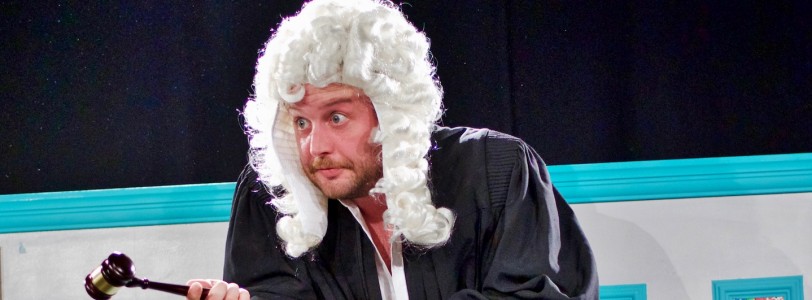Alex Stone (Katherine Rodden) is a small town girl who found her chance as a big city London lawyer. She is about to make partner when she is forced to go home and defend her friend accused of a heinous crime. One problem: she isn't a criminal lawyer.
Upon returning to her small and, dare I say, backwater hometown, she is instantly longing to leave it again. In some ways I relate, having moved from a small rural town to London and then going back, the move can be jarring, so it's pretty relatable.
The characters are your stereotypical bunch of country bumpkins. The show promotes itself as a mix of Legally Blonde and Hot Fuzz, and I can attest to the accuracy of that. Everyone has an incredible lax approach to social norms. They also seem to hold a light resentment to outsiders, and a special disdain towards Stone for abandoning her. Daisy Scott is the friend on trial, played by Lucy Farrett, and is your standard kooky weird ‘artsy’ type, into photography and runs an Etsy store. The prosecutor, Richard Dick (Chazz Redhead) is a hard ass with an apparent chip on his shoulder. The Mayor, heavily dedicated to her job is played by Emily Lloyd-Saini.
Arguably the best performances were made by Thom Tuck as the completely indifferent judge, and Mandy Dassa, taking on multiple characters called to the stand to make witness statements. She offered was a high degree of variation and a completely out of left-field performance that really invigorated the crowd.
The story was, on the whole largely predictable, and there were a number of groan-worthy puns. It’s an issue I’ve found with a number of comedy plays where the writer (in this case Jon Gracey from the Beta Males) feels they need to ram in puns and ‘quirky’ moments with frustrating frequency. It can feel like they aren’t convinced the play is strong enough on its own merit, but only serves to undermine things. A prime example would be the jokes around Richard Dick’s name. It just felt cheap given the moments of brilliance displayed elsewhere.
I must give credit though to the way the stage and set was used, with great transitions and clever use of the space to give the characters a chance to move. The incorporation of the crowd was great and another example of naturally occurring comedy. This play was good, but it could have been great had the number of terrible jokes been cut.









0 Comments